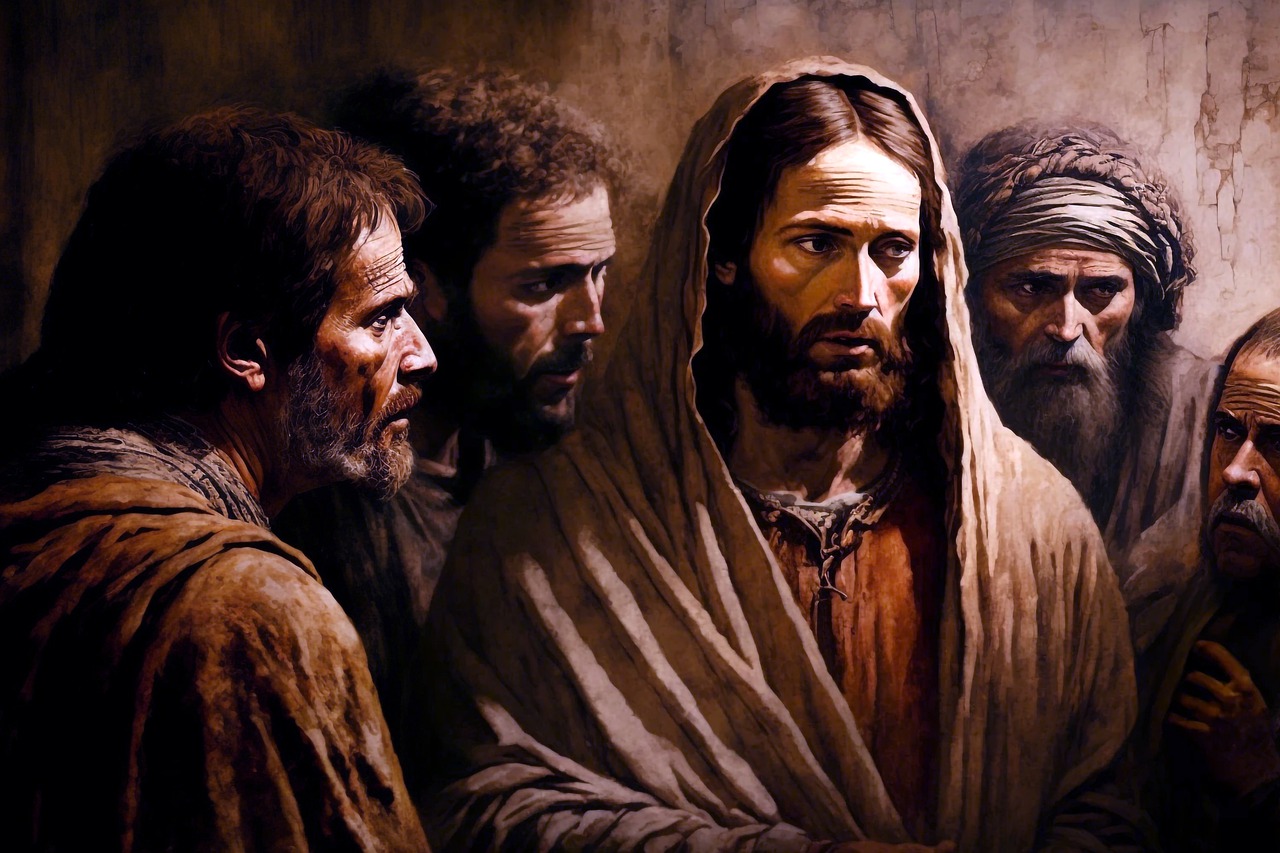Introduction
In the book of Job, chapter 13 holds significant prophetic and symbolic links to Messianic Jesus and the gospel. This article will delve into the summary of Job 13, analyze its content, and explore the connections between Job 13, Messianic Jesus, and the gospel. Job 13 is a crucial chapter that sheds light on the nature of suffering, the need for a mediator, and the hope of redemption.
Summary of Job 13
In Job 13, the protagonist, Job, rebukes his friends for their misguided words and asserts his desire to reason with God. Job accuses his friends of speaking deceitfully on behalf of God and warns them of God’s impending rebuke. Despite his suffering, Job expresses his confidence in God’s justice and his unwavering trust in Him. At the same time, Job questions why God hides His face and feels hindered by Him.
Job’s rebuke of his friends highlights their misguided understanding of God’s ways. He dismisses their platitudes as empty and meaningless, emphasizing the importance of true wisdom and understanding. Job’s unwavering trust in God showcases his integrity and faithfulness, even in the midst of immense suffering. Additionally, Job’s plea for God to reveal any hidden sins reflects his longing for divine vindication and a desire for a fair judgment.
Analysis of Job 13
Job’s critique of his friends reveals their flawed understanding of God’s ways. He dismisses their platitudes as empty and meaningless, emphasizing the importance of true wisdom and understanding. Job’s unwavering trust in God showcases his integrity and faithfulness, even in the midst of immense suffering. Additionally, Job’s plea for God to reveal any hidden sins reflects his longing for divine vindication and a desire for a fair judgment.
Job’s unwavering trust in God and his desire to defend his ways before Him demonstrate his confidence in his own righteousness. Despite the accusations and doubts from his friends, Job remains steadfast in his belief that he has lived a blameless and upright life. His integrity shines through in his refusal to compromise his faith, even in the face of intense suffering.
Prophetic and Symbolic Links to Messianic Jesus
Within the text of Job 13, there are several prophetic and symbolic links to Messianic Jesus and the gospel.Job’s suffering and his longing for a mediator foreshadow the redemptive work of Jesus. His words resonate with the Messianic prophecies found throughout the Old Testament. For example, Genesis 3:15 speaks of the enmity between the offspring of the serpent and the woman, which finds fulfillment in Jesus who crushes the head of the serpent. The messianic promise is traced throughout the Torah, with Genesis 4:1 hinting at the promised seed.
Another prophetic link to Messianic Jesus can be seen in Job’s desire for a redeemer. Job longs for someone who can intercede on his behalf, someone who can bridge the gap between him and God. This longing finds its ultimate fulfillment in Jesus, who serves as the ultimate mediator between God and humanity. Jesus’ sacrificial death and resurrection provide the redemption and reconciliation that Job yearned for.
Connection Between Job 13 and the Gospel
Job 13 aligns with the themes of suffering , redemption, and the need for a mediator, which are central to the gospel message. In the Gospel of Mark, Jesus’ actions in the cleansing of the Temple and cursing the fig tree symbolize the coming judgment on the Temple and Israel’s unfruitfulness. Job’s story highlights the universal human experience of suffering and the hope of redemption found in the gospel. Understanding the Old Testament’s influence on the Gospels deepens our comprehension of Jesus’ mission and the fulfillment of prophecies.
The connection between Job 13 and the gospel can also be seen in the concept of vindication. Job longs for God to reveal his hidden sins and to vindicate him against the accusations of his friends. In the same way, Jesus’ death and resurrection provide the ultimate vindication for all who trust in Him. Through His sacrifice, Jesus takes upon Himself the sins of humanity, providing a way for them to be forgiven and declared righteous in the sight of God.
The Significance of Job 13 in Biblical Understanding
Job 13 holds great significance in understanding the Old Testament and the Gospels. Job’s struggle and faith serve as a powerful example for believers facing trials, demonstrating the importance of unwavering trust in God. The story of Job also addresses theodicy and the problem of evil, offering insights into God’s character and His ultimate plan of redemption. Studying Job 13 provides a broader understanding of the biblical narrative and the nature of God. Job’s longing for a redeemer finds its ultimate fulfillment in Jesus, who serves as the ultimate mediator between God and humanity.
Conclusion
Job 13 serves as a pivotal chapter with prophetic and symbolic links to Messianic Jesus and the gospel. The summary and analysis of Job 13 reveal Job’s unwavering trust in God, his critique of his friends’ misguided words, and his longing for divine vindication. The connections between Job 13, Messianic Jesus, and the gospel highlight the enduring relevance of Job’s story in addressing suffering, redemption, and the hope found in the gospel message. Delving deeper into Job 13 allows us to gain a richer understanding of God’s plan of salvation. Job’s story serves as a reminder that even in the midst of suffering and unanswered questions, God is faithful and has a greater purpose that extends beyond our understanding.
#Job13 #Intercessor #Messianicprophecy #JesusChrist #Gospel #Propheticsymbolism #Biblicalteachings #OldTestament #Spiritualinsight #Scripture #Christianity #Salvation #Redeemer #Mediator #Faith



